Podcast: Play in new window | Download
Subscribe: Apple Podcasts | RSS
Guest: Lewis James Day, MNZM, DFC
Hosts: Dave Homewood
Recorded: 11th of June 2023
Duration: 1 hour 22 minutes, 12 seconds
In this episode Dave Homewood talks via Zoom with Lew Day, who was just five weeks away from turning 100 at the time of the recording, and Lew’s son Brian Day was also sitting in to help prompt Lew’s memory and relay the questions that Lew did not quite hear.
Lew had a long career in aviation, beginning with Air Force training in 1942. After his ab initio training on Tiger Moths at RNZAF Station Harewood, Christchurch, he embarked for Canada under the Empire Air Training Scheme to complete his pilot training on Cessna Cranes at RCAF Brandon, Manitoba. He then moved onto Prince Edward Island for specialist navigation training, before being posted to Britain.
On arrival in the UK he was posted to RAF Coastal Command and joined a new crew on Short Sunderland flying boats. As a second pilot, Lew was involved in patrols over the Atlantic, before the crew started to get ferrying jobs. The first was taking a new Sunderland down to Mombassa in East Africa. The next was taking a new Sunderland Mk. V to Rangoon in Burma, and when his captain became ill, Lew stayed on in Rangoon and joined a new crew with No. 230 Squadron RAF.
When the war ended Lew was in Singapore for the Japanese surrender, and was soon back home in New Zealand and demobbed from the RNZAF. He returned to his pre-war job with New Zealand Customs, but was invited by the Royal Air Force to join them as they were recruiting experienced aircrew.
He returned to England, and joined the RAF. He spent a year flying Oxfords, then Wellington and finally Avro Lancasters in order to gain the required experience as a four-engined captain, and then got back onto Sunderlands again with No. 209 Squadron, based in Singapore. During his two year posting there Lew was actively involved in two wars throughout, the Malayan Emergency and the Korean War. Flying Sunderlands as land bombers in Malaya, and also as convoy escorts and weather ships in Korea, he was kept constantly busy.
Eventually Lew returned to the UK to become an RAF flying instructor. Following his instructor’s course at the Central Flying School of the RAF, he was posted as an instructor at the Royal College at RAF Cranwell. There he was flying Harvards, Chipmunks, Boulton Paul Balliols and early Jet Provosts.
Following two years at Cranwell, Lew returned to the Central Flying School, now as an instructor with that school. He was flying the Jet Provosts here.
His next posting was as the Commanding Officer of No. 1 Air Navigation School, at RAF Topcliff. This role took him all over Europe, Africa and the Middle East on navigation exercises in Vickers Varsities and Vallettas.
Following 14 years with the Royal Air Force, Lew retired and moved with his family back to New Zealand, in 1962. Finding it impossible to get a position with the RNZAF or the airlines TEAL and NAC, Lew began working as the Chief Flying Instructor at Southern Districts Aero Club, in Gore.
After a few happy years at Gore, Lew and the family moved north again and he became an instructor at Auckland Aero Club.
He was then approached by Airwork (NZ) Ltd who needed a pilot for a contract they had with New Zealand Forest Products, flying two flights a day from Ardmore to Kinleith and back. He flew in this job for nearly 30 years.
At the same time Airwork had a contract with Westpac to fly a twin-engined aircraft on Search and Rescue flights operating in conjunction with the rescue helicopter. He flew commercially until he was 77 years of age. He has also spent many years writing aviation manuals and documentation, and he is writing his memoirs.
The following photos of Lew Day through his aviation career were kindly sent by Lew’s son Brian Day. My thanks to Brian for all his help.
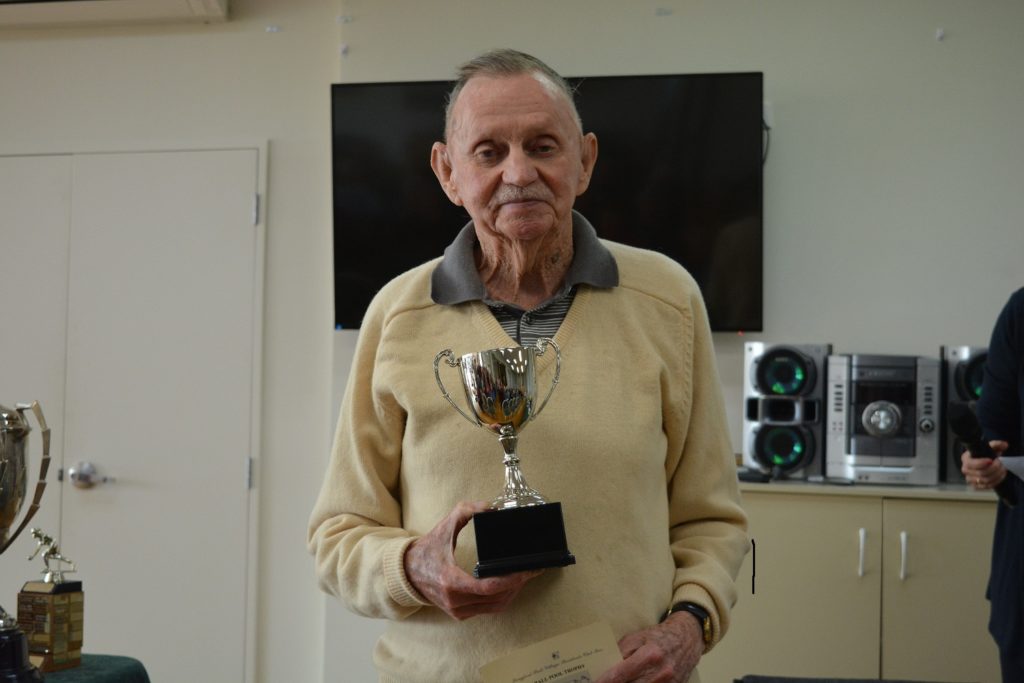
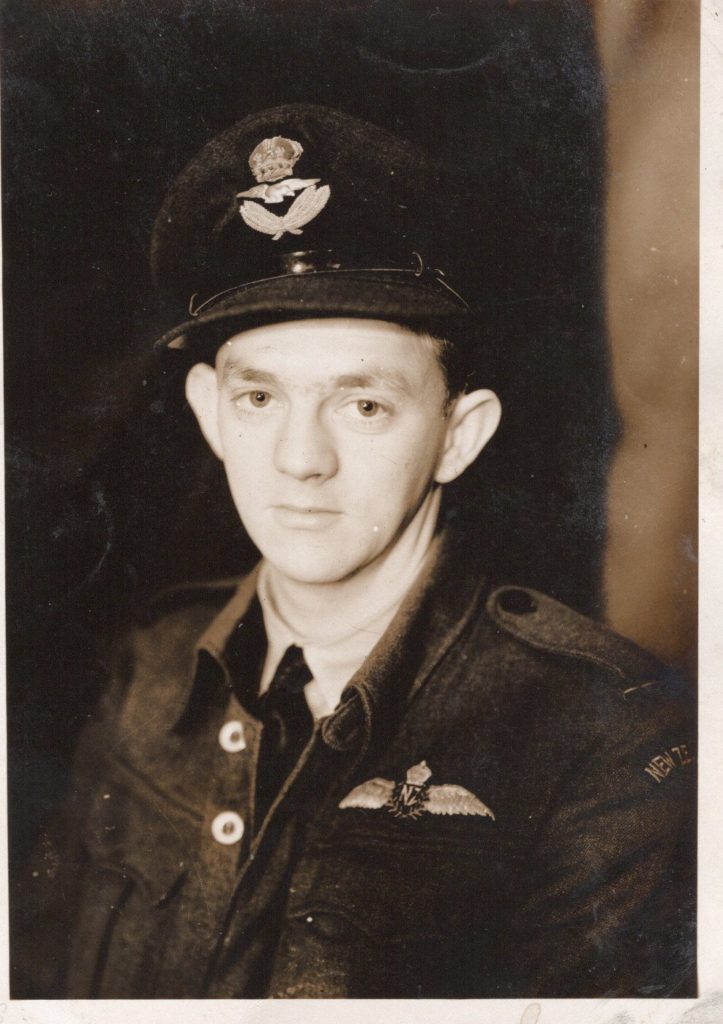

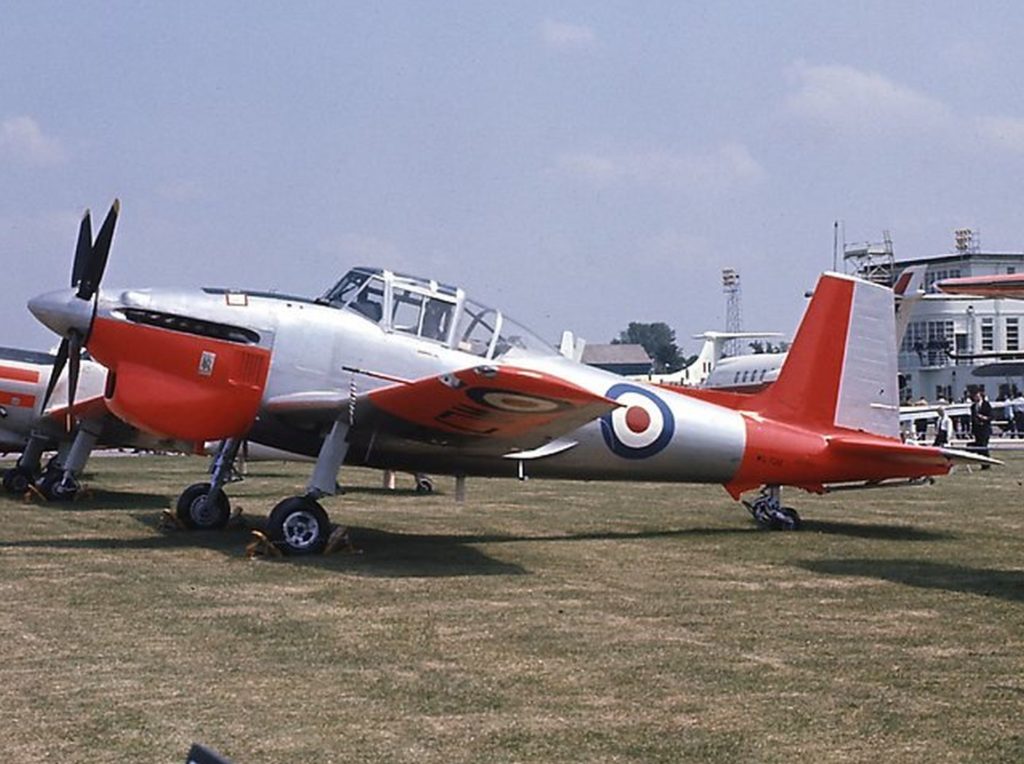
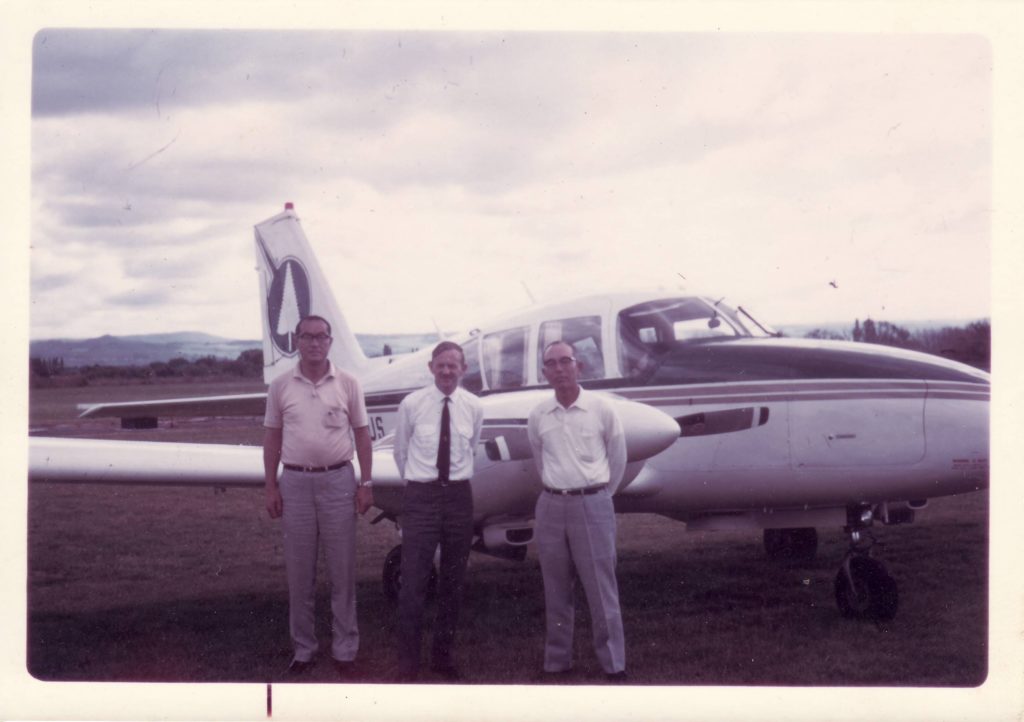

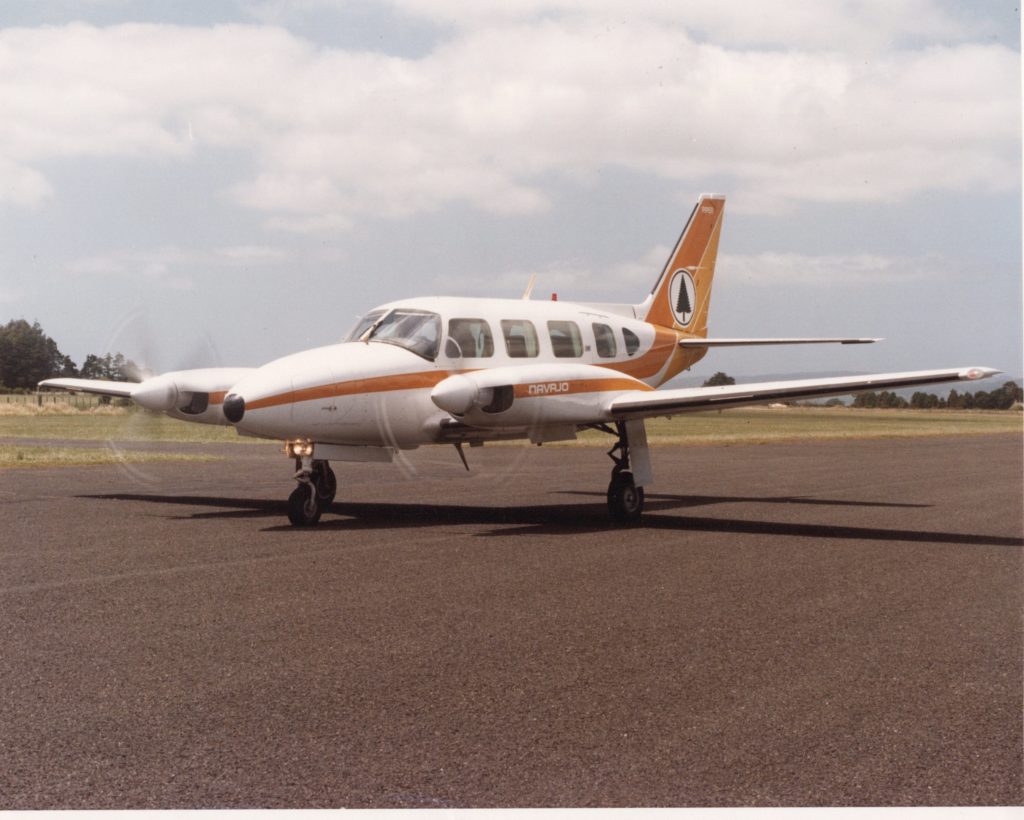
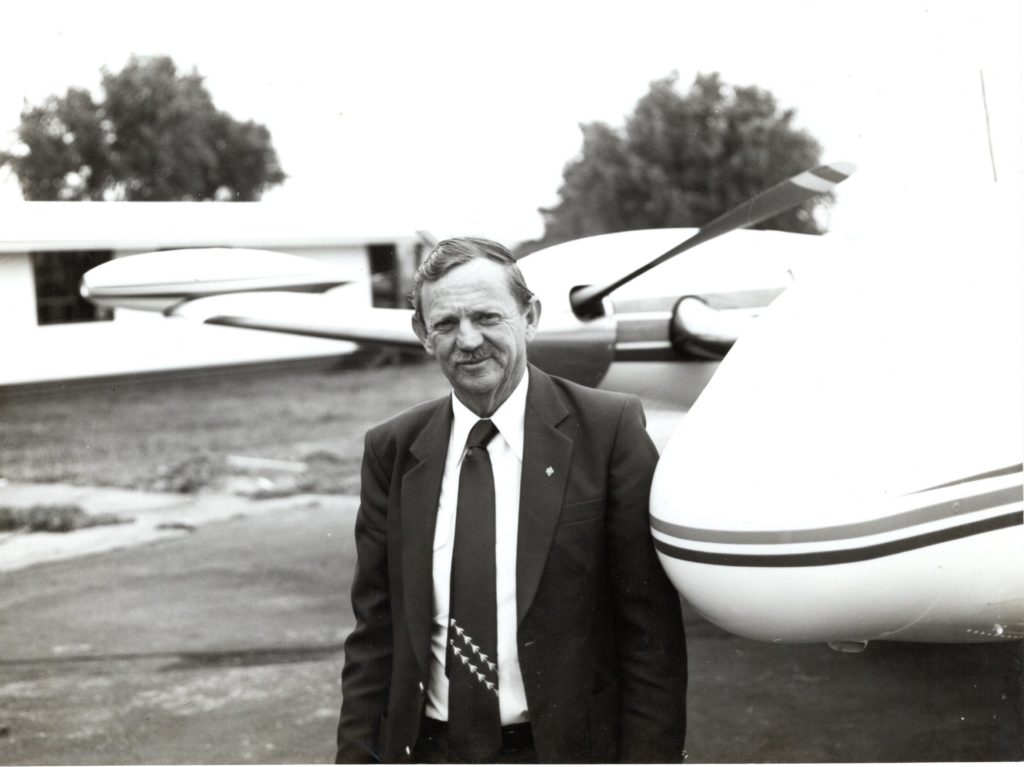

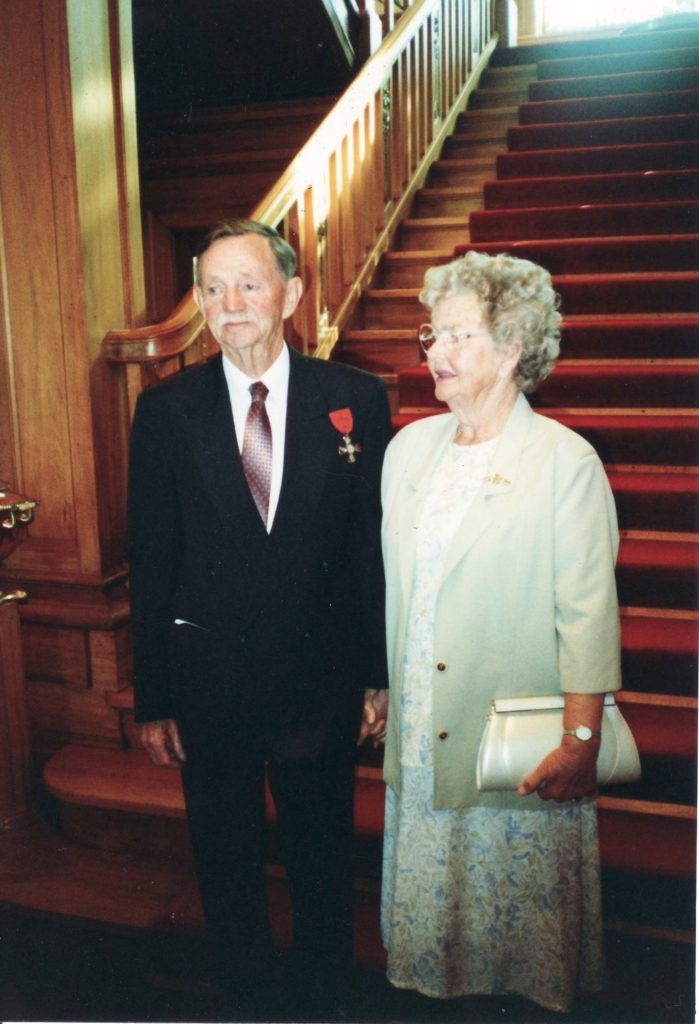

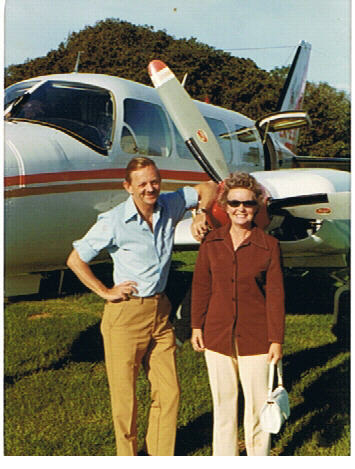

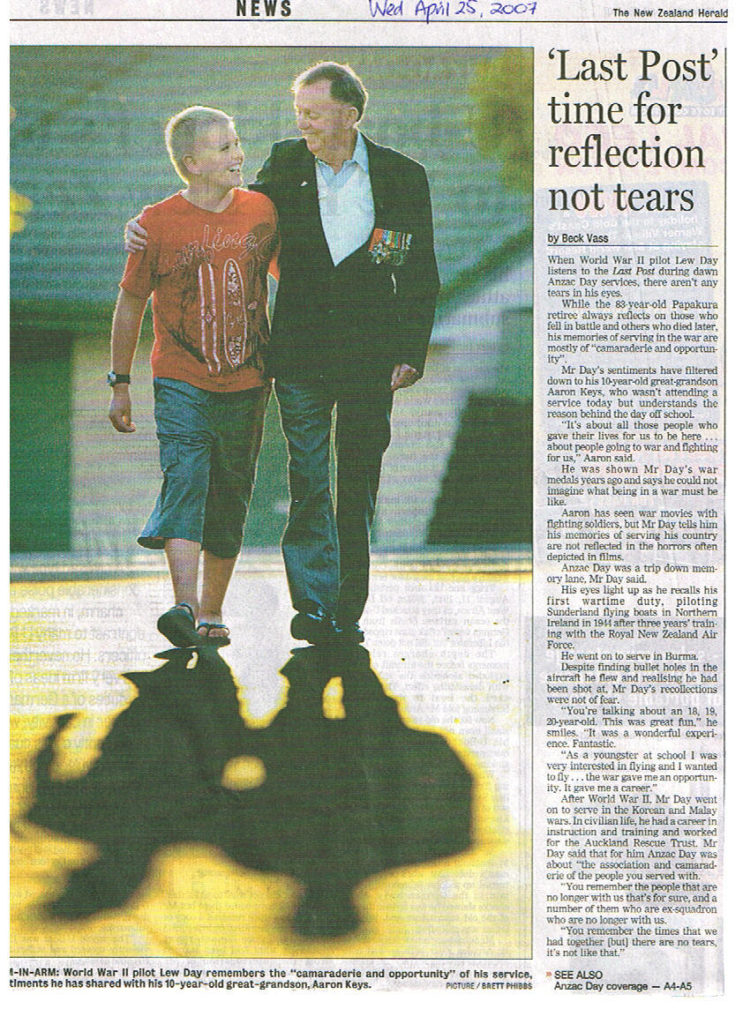
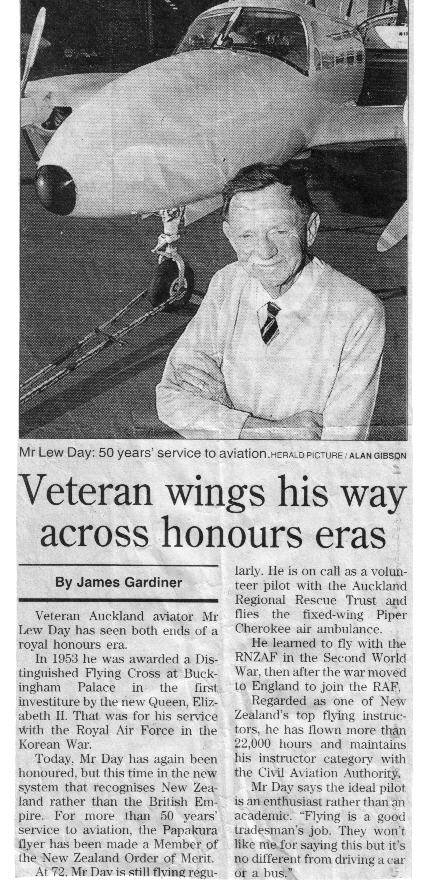


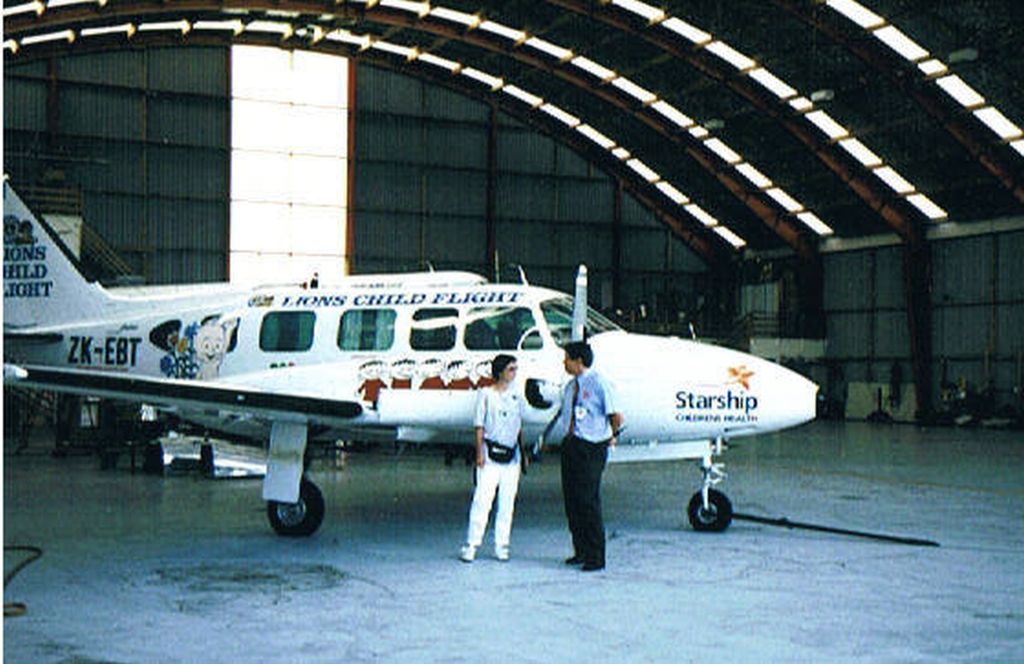
Quick Links:
• Southern Districts Flying Club
• Airwork
Lew Day was the best flight intructor I ever had….Quiet..patient…and always helpful..even with those like me who learned at a different rate….Why NZ airlines did not grab Lew was almost certainly because they envied his skill and experience. A loss of NZ commercial aviation and a gain for those young flyers who were lucky enough to share his knowledge..none really full understanding just ‘who’ they were benefitting from..or his reputation. Thank you Lew..this pilot never forgot you or those golden years of aviation in the 60s. Rob Sintes